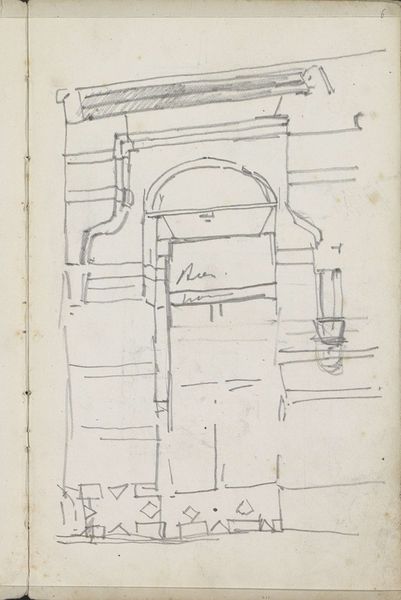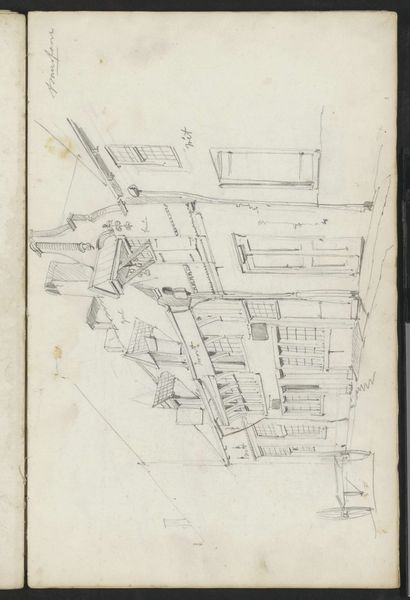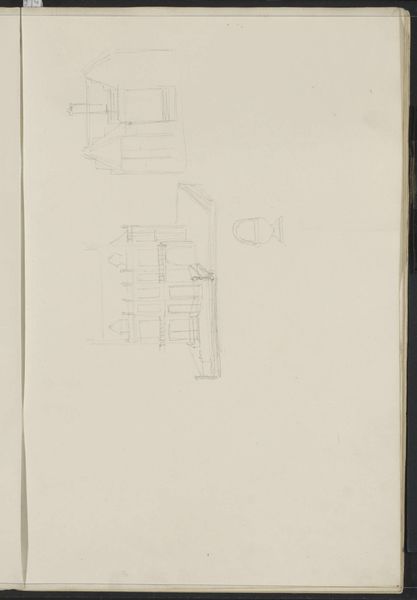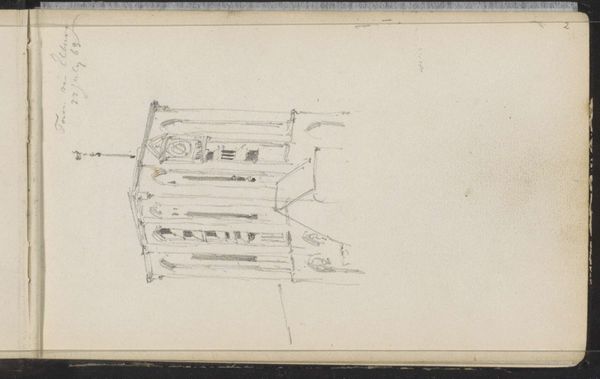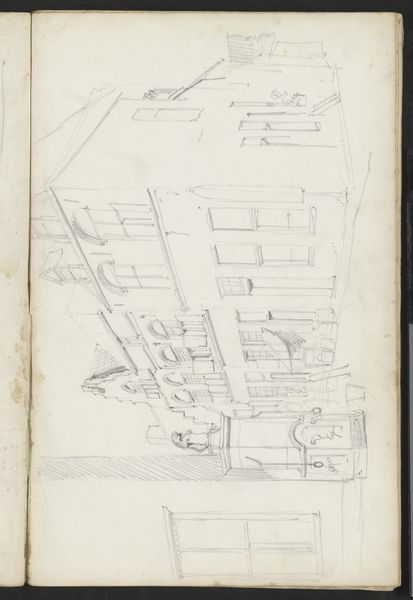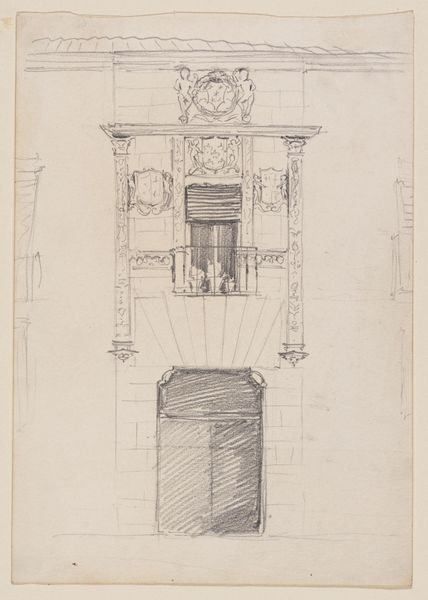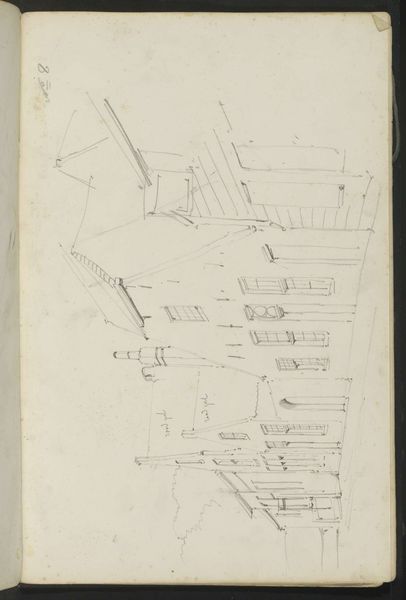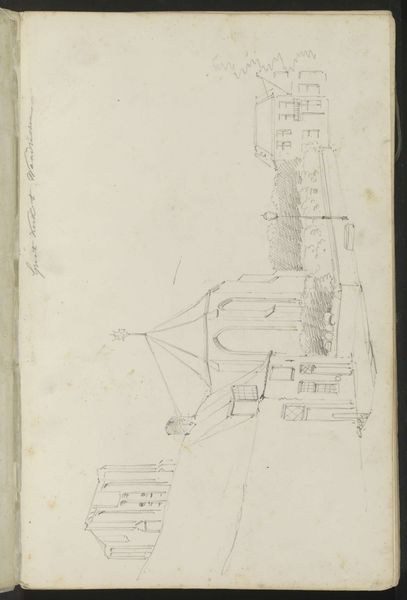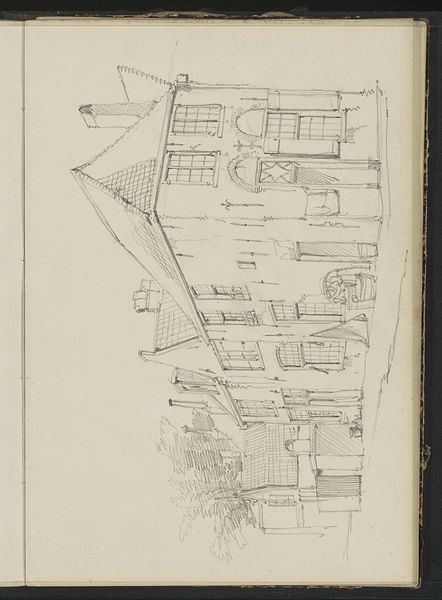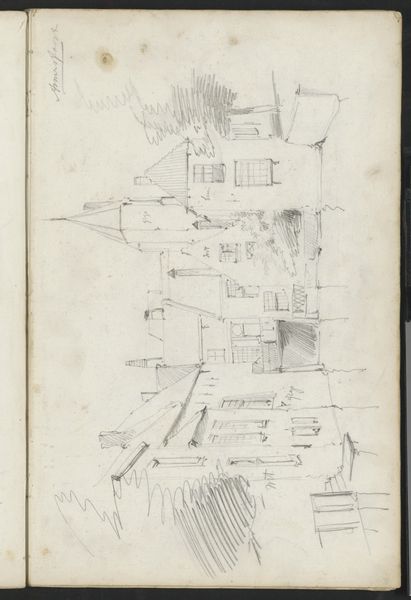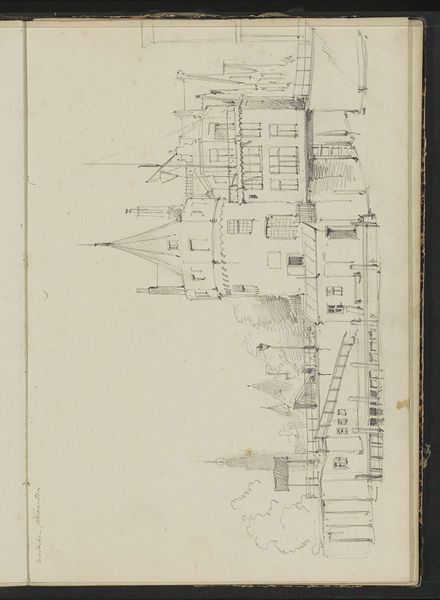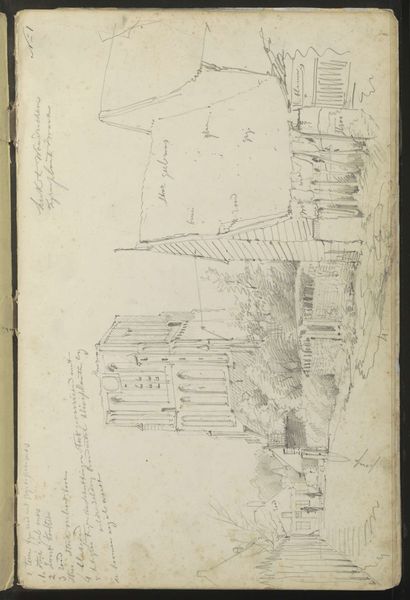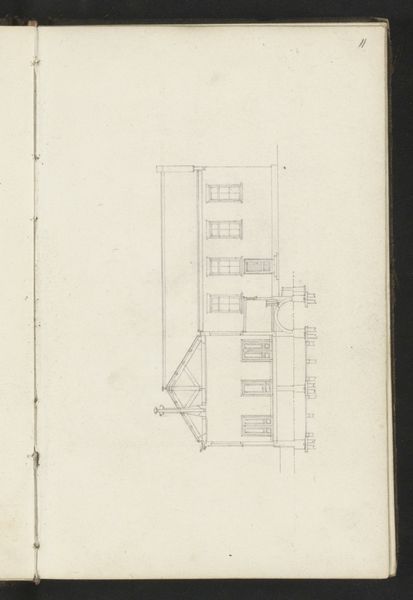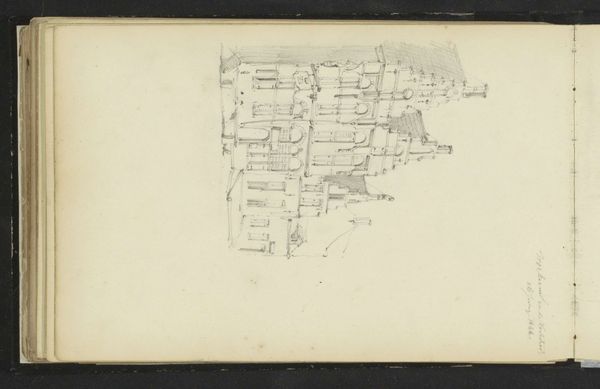
drawing, paper, pencil
#
drawing
#
aged paper
#
toned paper
#
pen sketch
#
sketch book
#
incomplete sketchy
#
paper
#
form
#
personal sketchbook
#
geometric
#
pen-ink sketch
#
pencil
#
line
#
pen work
#
sketchbook drawing
#
cityscape
#
sketchbook art
#
realism
Copyright: Rijks Museum: Open Domain
Editor: This sketch, titled "Vooraanzicht van een gebouw met twee verdiepingen" by Johannes Bosboom, likely from the mid-19th century, is rendered in pencil and pen on paper. It feels incredibly immediate, like a fleeting impression captured in a sketchbook. What aspects stand out to you? Curator: What's immediately striking is how Bosboom treats architecture not just as a subject, but as a construction – or deconstruction – of lines and planes. Notice how the rapid strokes delineate not only the building’s form, but also reveal the artist's labor. Each line is a record of physical movement, isn't it? The drawing isn't precious. It’s a raw documentation of a process. How do you think the context of 19th-century urban development might influence his sketch-like practice? Editor: That's a great point. With the city changing so rapidly, perhaps sketching became a way to grasp the ephemeral nature of the built environment itself. The choice of readily available, relatively inexpensive materials like pencil and paper also speaks to accessibility. It allowed more artists to document these changing landscapes. Curator: Precisely. Consider who had access to these scenes, to the *act* of representation. Think of the socioeconomic implications of capturing architecture this way, a counterpoint to grand academic paintings. Was this accessible production a quiet subversion? Editor: It definitely broadens who gets to participate in creating visual records, doesn’t it? Curator: The very materiality argues for art making and consumption within new segments of society. What strikes you about this after our discussion? Editor: Thinking about the materiality and process helps me see this sketch as more than just a quick study. It's a social artifact, reflecting changes in artistic production and access in 19th-century Dutch society. Curator: Exactly, by looking at the 'how' we illuminate the 'why.'
Comments
No comments
Be the first to comment and join the conversation on the ultimate creative platform.
